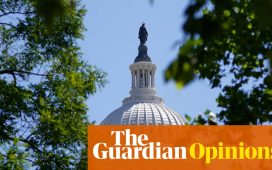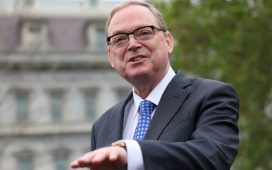
© Reuters. FILE PHOTO: A shopper is reflected on a mirror glass as she checks food items at a supermarket in Tokyo, Japan January 20, 2023. REUTERS/Issei Kato/File Photo
2/3
By Mark John
(Reuters) – A year of war in Ukraine has already made a dent in world prosperity. But its deeper impact will be felt in how the conflict plays into shifts that were already reshaping the global economy before Russia’s tanks rolled in.
Most immediately, the war added new uncertainties to the economic trauma of a COVID-19 pandemic that had already led to record rises in public debt, inflation-fuelled cost-of-living crises, and labour shortages in essential sectors.
Economic sanctions on Moscow came as hurdles to world trade were mounting after an era of rapid globalisation. Russia’s weaponisation of its gas and oil exports bolstered the case for an energy transition already made urgent by climate change.
“The shock of war on demand and prices has cascaded through the global economy and, in conjunction with COVID and other policy decisions, has created these headwinds to growth,” said Robert Kahn, director of global macro-geoeconomics at the Eurasia Group consultancy.
“And I think we are not done yet.”
The war has devastated Ukraine’s economy, shrinking it by a third, while sanctions are now starting to starve Russia of revenues from energy and other exports. But it is harder to quantify its impact on the rest of the world.
European neighbours have so far avoided the mass energy rationing and wave of bankruptcies that were feared, thanks to efforts to build up fuel stocks and rein in energy demand, and – not least – to an unusually mild winter.
Global food and energy prices were already surging as the world emerged from the pandemic lockdowns of 2020 and spiked higher after the outbreak of war, but many indices are now below their levels of a year ago.
“We find that energy prices increased more in 2021 than in 2022, suggesting that the war and the sanctions were not the most important drivers,” analysts Zsolt Darvas and Catarina Martins found in a December study for European think tank Bruegel.
Graphic: From COVID to conflict https://www.reuters.com/graphics/UKRAINE-WAR/GLOBALECONOMY/byvrlkbwbve/chart.png
Graphic: Europe’s gas price rollercoaster https://www.reuters.com/graphics/UKRAINE-WAR/GLOBALECONOMY/zjvqjwdgqpx/chart.png
Graphic: World food prices off highs https://www.reuters.com/graphics/UKRAINE-WAR/GLOBALECONOMY/zgvobkygjpd/chart.png
NO ENDGAME IN SIGHT
Some might conclude that means the world economy has taken the conflict in its stride. Optimism prevailed at this year’s World Economic Forum in Davos, while financial markets are betting that advanced economies can avoid all-out recession.
The International Monetary Fund now estimates the global economy grew 3.4% last year – barely one percentage point lower than it had forecast before the war started, and before the world’s central banks took aim at inflation with big interest rate hikes.
Whether world growth can now match the Fund’s 2023 forecast of 2.9% remains to be seen. That newly upgraded estimate is well above the more downbeat 2.1% consensus forecast of private economists polled by Reuters last month.
And there are other high-stakes unknowns.
With no end to the war in sight, the chief threat remains escalation, including the use by Russia of battleground nuclear weapons. That would take the outlook for both the global economy and wider peace into uncharted territory.
The war’s impact on the power sources driving the global economy evolved through 2022, with an early rush into old fossil fuels such as coal followed by a growing push to invest in the renewable energies that are seen as less vulnerable to future geopolitical shocks.
The International Energy Agency expects falling Russian oil exports to soon contribute to a plateau in global demand for fossil fuels and so offer the potential for a faster transition towards green energy.
But that still requires more than the record $1.4 trillion investment in clean energy the IEA sees for 2022. For the economy, the risk is that energy prices – and hence inflation – will be squeezed higher if shortfalls are not met.
What the conflict means for global trade is also unclear.
The 2007/08 financial crisis and election victories for politicians advocating protectionism had already paused a two-decade spurt in globalisation that saw containerisation expand and both Russia and China enter the world trade system.
Now the question is whether Western sanctions on Russia – which effectively cordon off what was the world’s 11th largest economy – are the start of a further entrenchment as countries restrict trading partners to those they see as allies.
The World Trade Organization and others see a risk that commerce splinters into hostile trading blocs, a scenario the IMF has modelled as shaving as much as 7% off global output.
One possible trigger for that could be a shift towards an extensive round of secondary sanctions targeting not only Russia but companies and investors that do business with it.
Eurasia’s Kahn said such a move – which could gain political traction if the conflict gets hotter – would plunge Russia into economic isolation comparable to that experienced by Iran, long sanctioned by the West over its nuclear programme.
“We haven’t done that because Russia is much more important and because we are worried about the global repercussions of comprehensive sanctions,” said Kahn.








